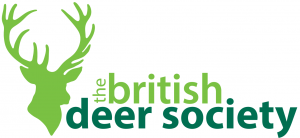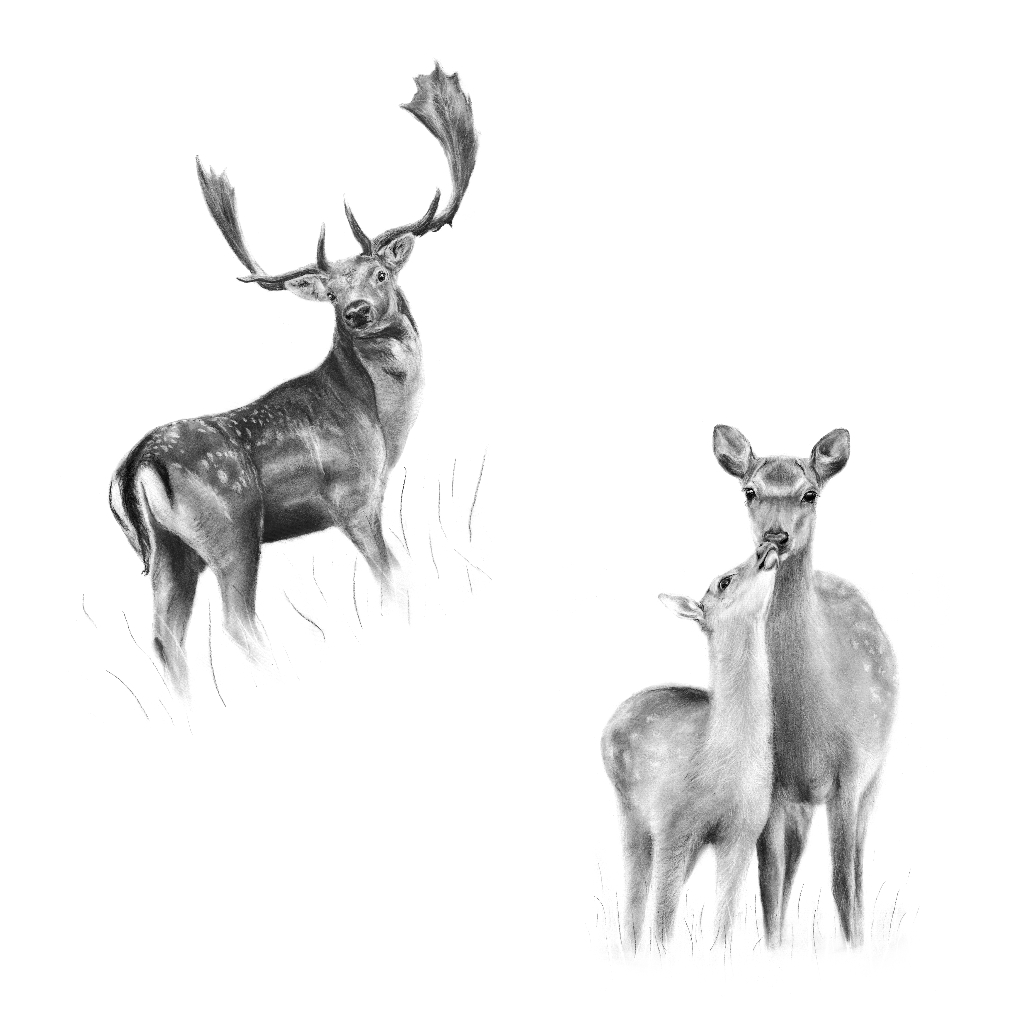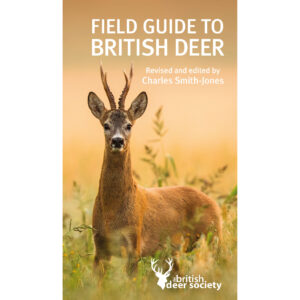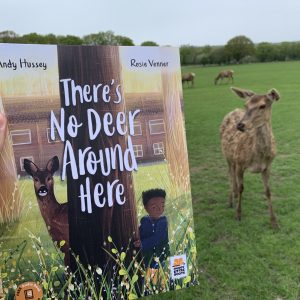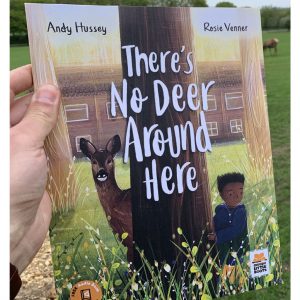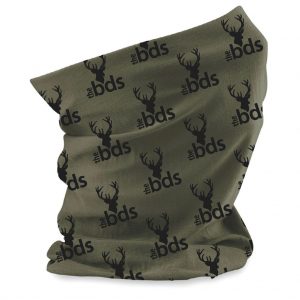Deerly Beloved
Share article:
Article by:
Linda Mellor , Writer. Editor. Photographer. and Author., British Deer Society
Deerly Beloved: Celebrating Our Enduring Affection for Deer
For centuries our love of deer has inspired artists, storytellers and writers. Perhaps one of the most famous children’s stories was ‘Bambi’ by Felix Salten, and that’s where my lifelong love of deer started, aged 4 or 5. Growing up, I was excited to see deer, there was something magical in catching sight of them on the edges of woodland at dawn or dusk. Today, age 59, a glimpse of deer on my travels still elicits the same emotional response and is typically followed by an exclamation of ‘deer!’
These days, as people leave their urban environments and flock to the countryside their expectations of seeing wildlife are high, particularly in Scotland, seeing a stag out in the hills is part of their outdoors experience. Social media images of a stag in the highlands or outside a hotel with the backdrop of Glencoe (he even appears on the hotel’s website) commands a high volume of likes. There is a very lucrative market for deer-related products, clothing and tourism trinkets for the home and you’d struggle to find a hotel in the highlands that doesn’t have some deer-related decor. We love deer and they are a cherished symbol of Britain’s natural heritage, reflecting our intrinsic connection to the natural world.
However, despite their significance, the general narrative surrounding deer is rarely positive. This frequently negative misinformation perpetuates in deer being labelled as pests with no value. Such misrepresentation doesn’t align with the affection and importance of one of the UK’s emblematic species.
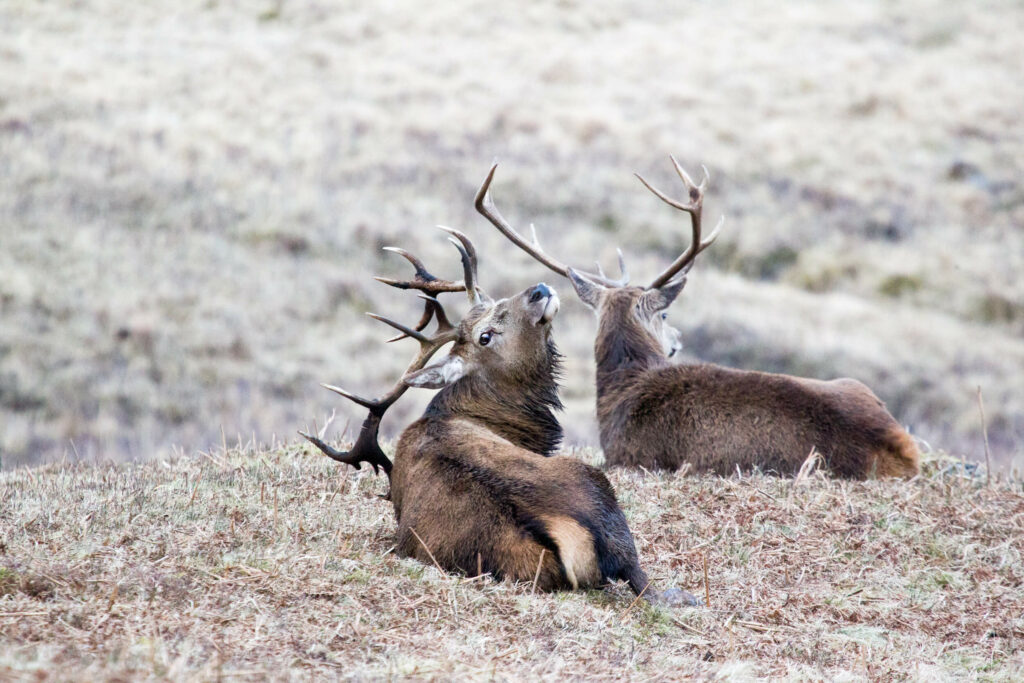
A negative narrative undermines the work of many organisations, especially the ones promoting venison as a healthier alternative to beef. In Scotland, home-grown venison has an enviable provenance, with hotel and restaurant menus built around their local food stories. Understanding our food origins enhances our dining experience and deepens our satisfaction in knowing we are doing something good for the deer, our health and also for rural employment. Responsible harvesting by deer managers is a fundamental component of sustainable land management and is a conservation story worth shouting about.
The health benefits derived from deer extend beyond what’s served on our plates. Observing deer, along with other wildlife, is one of the most simple and rewarding human experiences. Capturing images of deer in their natural habitat is an enriching skill and spending time in nature has been linked to improved physical and mental well-being. It promotes a sense of reward, boosts our connection to the natural world, reduces stress and enhances our mood and well-being. In an increasingly fast-paced, digitally-distracted world, the need to reconnect with nature is greater than ever.
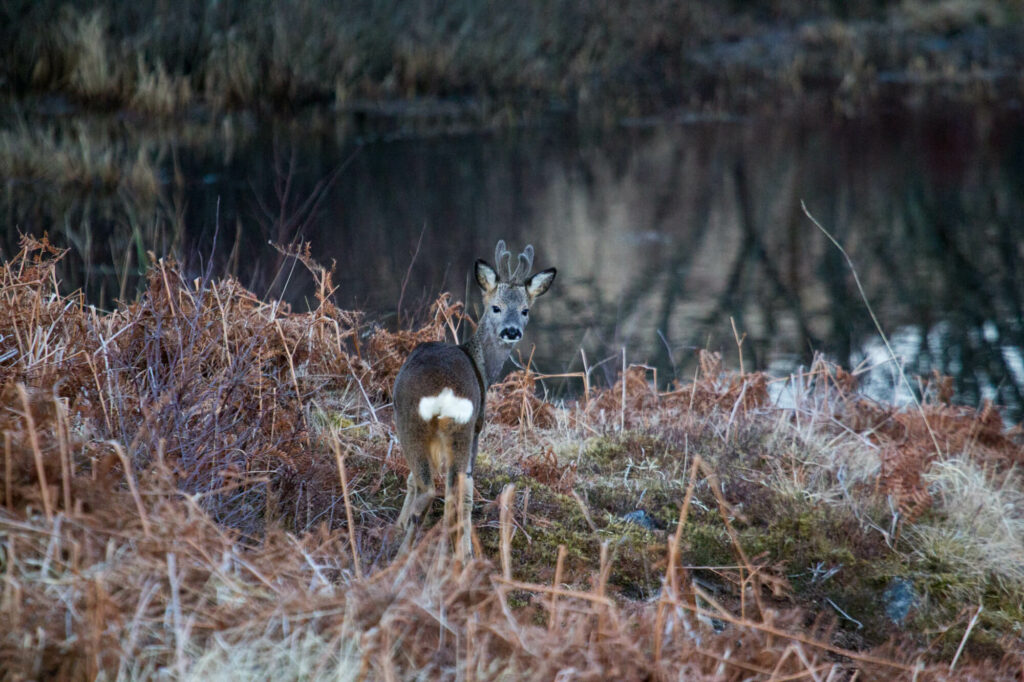
As a nation renowned for its love of animals, we have a unique opportunity to reshape the language with deer-positive stories, information and images. By promoting a positive narrative surrounding deer in the UK, we can foster greater knowledge and appreciation for these magnificent animals while also advocating for their responsible management and conservation. Maybe we’ll inspire youngsters on a lifelong journey of loving and caring for deer.
#deerlybeloved
See a glimpse into deer in the Highlands through more of Linda’s stunning photographs below.
FIND OUT MORE
The British Deer Society is a charity working to improve awareness and understanding about deer, deer welfare and deer management. You can add your voice today by:



